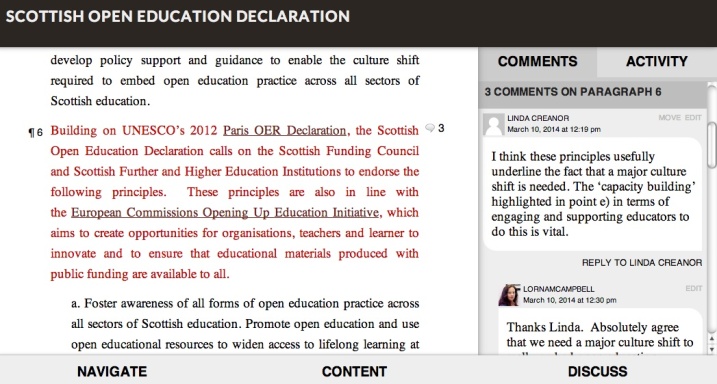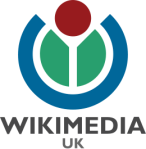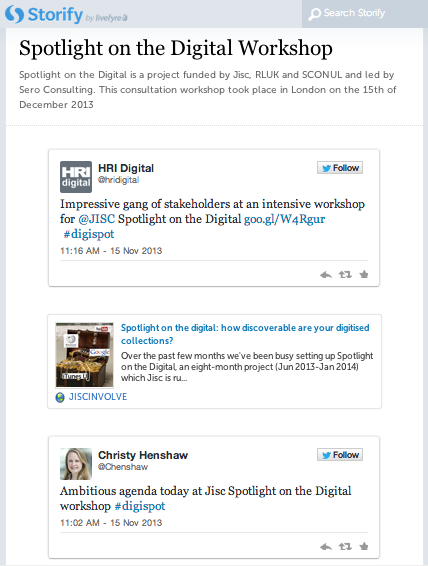 The third annual Open Education Week takes place from 10-15 March 2014. The purpose of Open Education Week is “to raise awareness about the movement and its impact on teaching and learning worldwide“.
The third annual Open Education Week takes place from 10-15 March 2014. The purpose of Open Education Week is “to raise awareness about the movement and its impact on teaching and learning worldwide“.
Cetis staff are supporting Open Education Week by publishing a series of blog posts about open education activities. The Cetis blog will provide access to the posts which will describe Cetis activities concerned with a range of open education activities.
A little history….
The origins of the Open Scotland Initiative can be traced back to the OER12 Conference in Cambridge where Sir John Daniel, President and Chief Executive Officer of the Commonwealth of Learning, presented a keynote about the COL / UNESCO Open Educational Resource Survey and the Paris OER Declaration. Joe Wilson of SQA and I were both in the audience that day, and when Sir John mentioned that the survey had been sent out to all Commonwealth Governments, OECD Commonwealth countries and UNESCO Member States, we couldn’t help wondering if a copy had ever reached the Scottish Government. As far as we were able the ascertain, this widely disseminated questionnaire never found its way north of the border to Edinburgh, so here was no Scottish response.
At the same time, the third and final year of the HEFCE funded UKOER programme was drawing to a close. Although Scottish institutions were able to benefit from the resources released by UKOER projects, they had not been eligible to bid for funding and participate in the programme itself. Arguably this resulted in lower awareness of the potential benefits of open education across the sector, and open education practice was less well embedded within institutions.
Open Scotland
These were just two of the drivers that encouraged Cetis, SQA, Jisc RSC Scotland and the ALT Scotland SIG to come together to form Open Scotland. Open Scotland is a voluntary cross sector initiative that aims to raise awareness of open education, encourage the sharing of open educational resources, and explore the potential of open policy and practice to benefit all sectors of Scottish education. In June 2013 the group hosted the Open Scotland Summit, which brought together senior managers, policy makers and key thinkers to explore the development of open education policy and practice in Scotland.
Scottish Open Education Declaration
During the summit, participants explored the potential of developing an Open Declaration for Scotland based on the UNESCO Paris OER Declaration. There was general agreement that the Paris Declaration was a “good thing” however many colleagues felt it was too focused on OER and that a Scottish declaration should encompass open education more widely. The result is the Scottish Open Education Declaration, a draft statement adapted from the Paris OER Declaration. In order to coincide with Open Education Week, the first draft of the Scottish Open Education Declaration has been shared online using the CommentPress application to enable all members of the community to add comments and feedback. We invite all those with an interest in open education in Scotland to comment on and contribute to this draft and to encourage their colleagues to join the debate.





